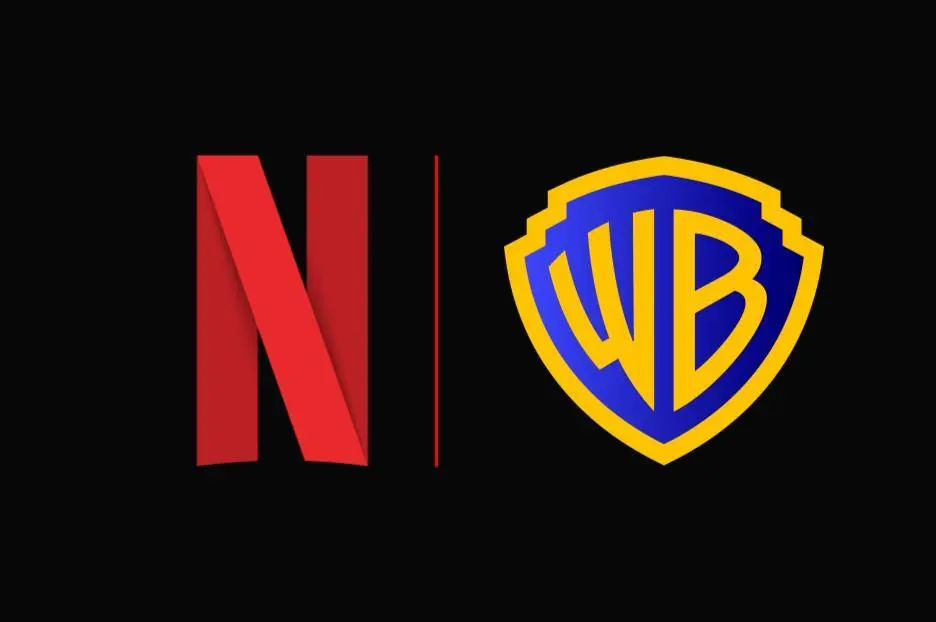Best Female-Founded Brands to Support

Oct 11 | 2024

Photo by LinkedIn Sales Solutions on Unsplash
Oh, how far we’ve come! Recently, it was revealed that — finally! — women CEOs at Fortune 500 companies outnumber male CEOs named John. A dubious milestone, but it’s something to celebrate.
Though women have come pretty far in society, the progress we’ve made is far from enough. From the pay gap to daily microaggressions, it’s still obvious that women are treated as lesser than in society. This is especially clear when you look at how few female-founded businesses there are.
According to Rolling Stone, it’s crucial to support female-owned businesses. They report: “While it is true that the different experiences and backgrounds that women and men have undoubtedly affect business approaches, this is a good thing. A business with diverse perspectives is an innovative business that can push the boundaries of industries.” Like with any other social justice cause, uplifting marginalized folks is good for everyone involved. We all benefit from the increased, diverse worldviews brought about by representation.
The article continues: “Having a gender-diverse business yields better consumer insight, and in turn, a more profitable business. Back in 2015, McKinsey & Company found businesses that were more gender-diverse were likely to outperform approximately 15 percent above the industry median. Years later in 2020, they found that the percentage had increased to 25 percent.”
Therefore, even if we aren’t focused on all the social and political reasons to uplift female entrepreneurs, it’s better for everyone’s bottom line if we do.
Yet, despite this oft-proven reality, archaic stereotypes and oppressive systems stand in the way of progress in every sector. An article in Business News Daily outlines some of the obstacles women face as entrepreneurs. The number one hurdle they face? Social expectations.
The article advises that in order to beat this imposter syndrome, female founders should stick to their guns rather than trying to conform. “Women may feel as though they need to adopt a stereotypically “male” attitude toward business: competitive, aggressive, and sometimes harsh. But successful female CEOs believe that remaining true to yourself and finding your voice are the keys to rising above preconceived expectations.”
But often, women are told their lack of professional advancement is their fault. You’re too shy. You’re not assertive enough. You need to ask for what you want. Otherwise, how do you expect to get it?
However, despite this refrain, it’s not their fault. This scapegoating convinces ambitious women that if their careers are stifled, it’s their fault. This causes imposter syndrome, lack of representation, and real industry consequences.
According to BND, “Raising capital is even more difficult for women-owned businesses. A 2014 Babson College report found that less than 3% of companies with venture capital funding had female CEOs … venture capitalists tend to invest in startups run by people of their own ‘tribe.’”
Other things that get in the way of women climbing the ladder to success include: struggling to be taken seriously, owning their accomplishments, building a support network, balancing business and family life, and coping with the fear of failure.
These are real, tangible barriers that most female entrepreneurs face. The women who have succeeded should be celebrated — and this month is the perfect one to do so. Luckily for us, we can vote with our dollars, supporting the businesses we love so that there can be more like-minded companies out there in the world.
Here are some of my favorite female-owned brands to support in the pursuit of equality:
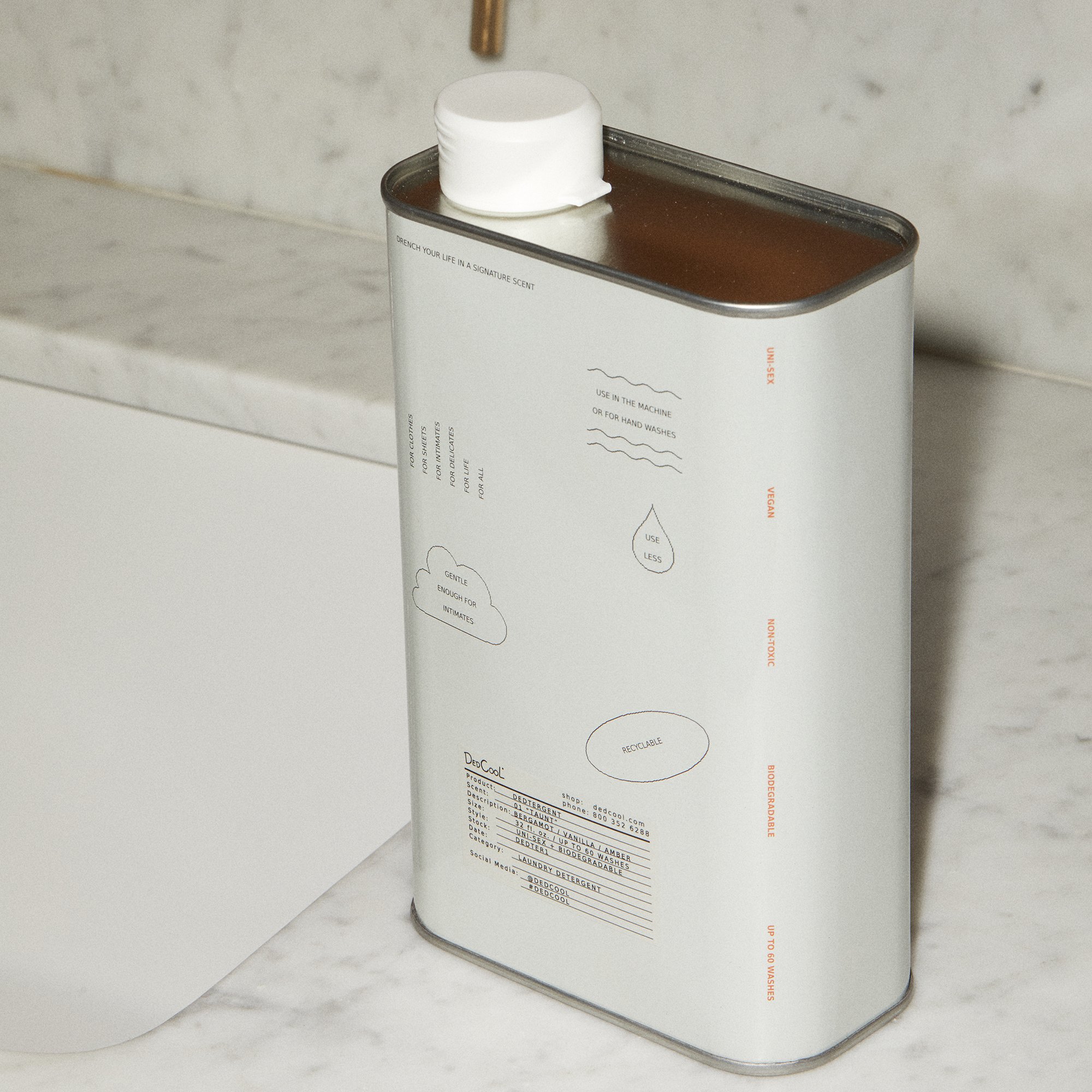 DedCool
DedCool
DedCool was founded by Carina Chaz in 2016 inspired by her passion for fragrance, masculine scents, and clean ingredients. The Gen-Z fragrance and lifestyle brand puts the fun in functional. DedCool is on a mission to reimagine scent by breaking down luxury fragrances and translating functional scents throughout our everyday life from our clothes, bathrooms, bedrooms to even our cars. Their offerings include room/linen sprays, car fresheners, and their signature laundry detergents.
DedCool’s hero product is the viral favorite Dedtergent ($35) — a new take on a classic staple. Your clothes will smell good, feel good, and look good with a wash from this eco-friendly, non-toxic, biodegradable alternative naturally sourced from plant materials. Not to mention the addictive, perfume-inspired scents.
via DedCool
Taunt Dedtergent by DedCool
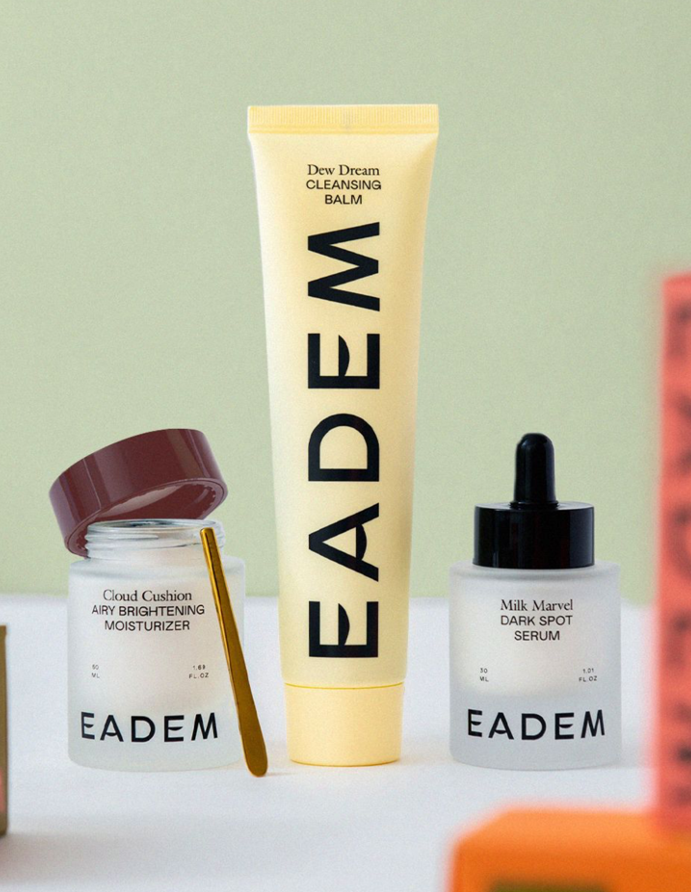 EADEM
EADEM
EADEM is a clean beauty brand centered around women of color and their beauty needs for bare-skin confidence. Co-founders Marie Kouadio Amouzame and Alice Lin Glover started the brand to cater to BIPOC skin. Their products make space for skincare designed for people of color. EADEM is redefining beauty standards and challenging the industry to push beyond tokenism.
Together with an industry-leading dermatologist, the EADEM team is pioneering Smart Melanin Beauty: combining science-backed ingredients and heritage botanicals to effectively and gently care for skin of color. Their hero product is the Milk Marvel Dark Spot Serum, a game changer for dark spots on pigmented skin.
via EADEM
Brighter not Lighter Set by EADEM
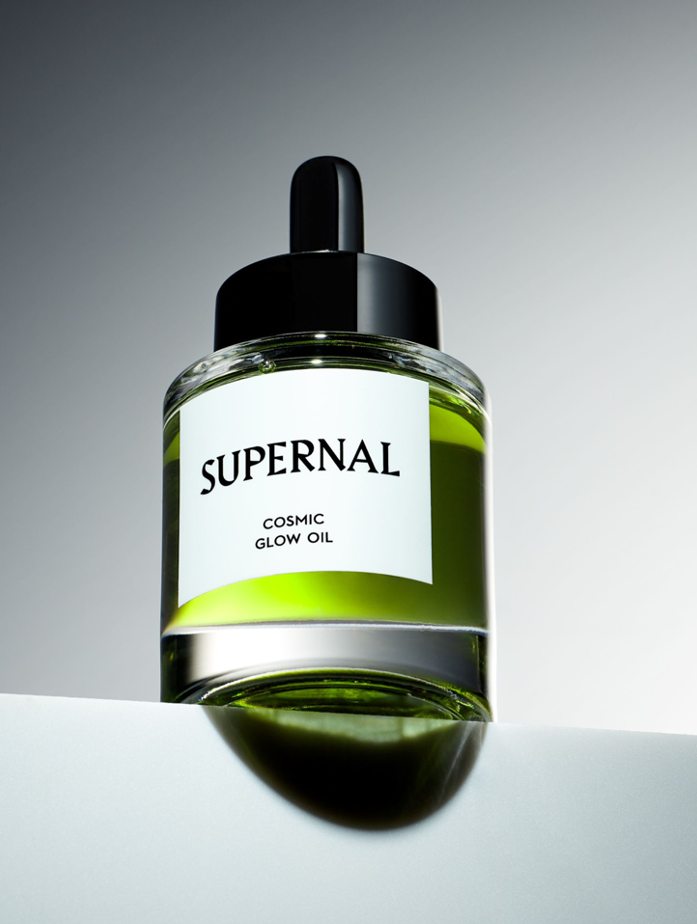 Supernal
Supernal
After a successful 15-year career as a Creative Director in NYC, where she worked at hip hop, basketball, and beauty magazines, Melissa Medvedich decided it was time to change course and follow her ultimate dream: skincare. Having grown up in a Chinese household there was an inherent emphasis placed on caring for your skin, and Melissa had always been mesmerized watching my mother, grandmother and great-grandmother carefully apply their creams. This led to her obsession with “plant magic” and she enrolled herself at the renowned New York Institute of Aromatic Studies and became totally immersed in understanding the therapeutic actions of the ingredients and how they interact with skin. Melissa received her aromatherapy certification, but didn’t stop there – she later returned to school to continue her studies in botanical beauty formulations.
Enter Supernal: a marriage of Melissa’s love for high-quality botanical skincare and design. The brand launched with just one SKU, the cult-favorite Cosmic Glow Oil, and has since expanded with additional SKUs in the skincare category. The addictive face oils are a highlight — but also, don’t miss out on the beautifully crafted Gua Sha tools!
Via Supernal
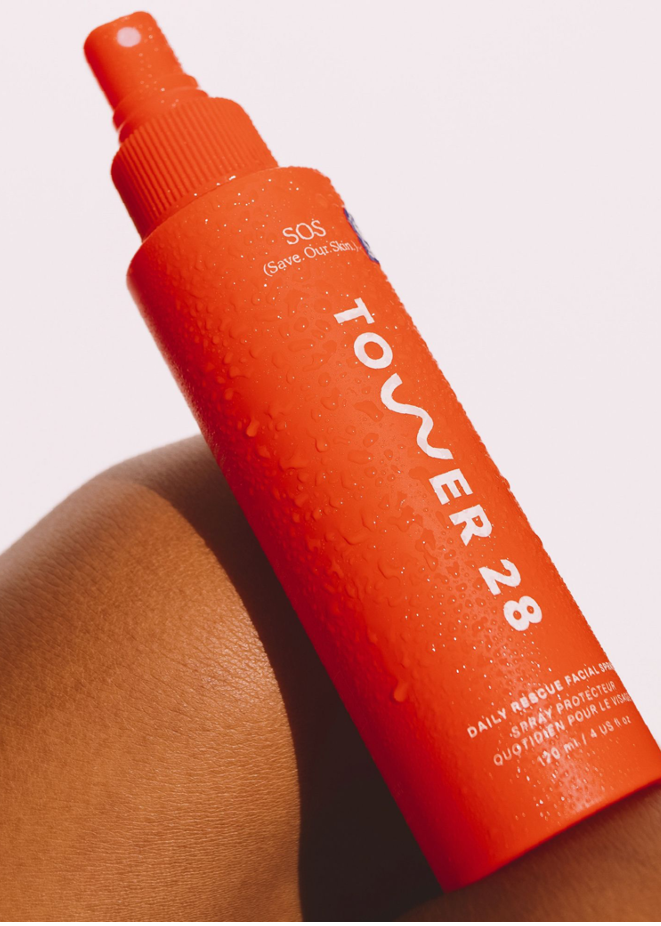 Tower 28
Tower 28
You probably heard of Tower 28 on TikTok — especially if you’re a Hailey Bieber stan. From their SOS Hypochlorous Acid Spray to their glossy Lip Jelly, Tower 28 is an internet favorite. But the brand isn’t just another passing trend.
Tower 28 is a clean brand of playful beauty products designed for sensitive skin and made for all! Founder Amy Liu’s emphasis on inclusivity, accessibility, and efficacy is changing the face of the growing non-toxic beauty industry. Tower 28 offers products inclusive of all skin tones, skin types, budgets, and beauty philosophies. Tower 28 is the first beauty brand that’s 100 percent clean, vegan, and free of every known skin irritant. Everything is rigorously dermatologist and allergy-tested (formulas adhere strictly to the National Eczema Association’s ingredient guidelines) — plus, it’s all made in the USA.
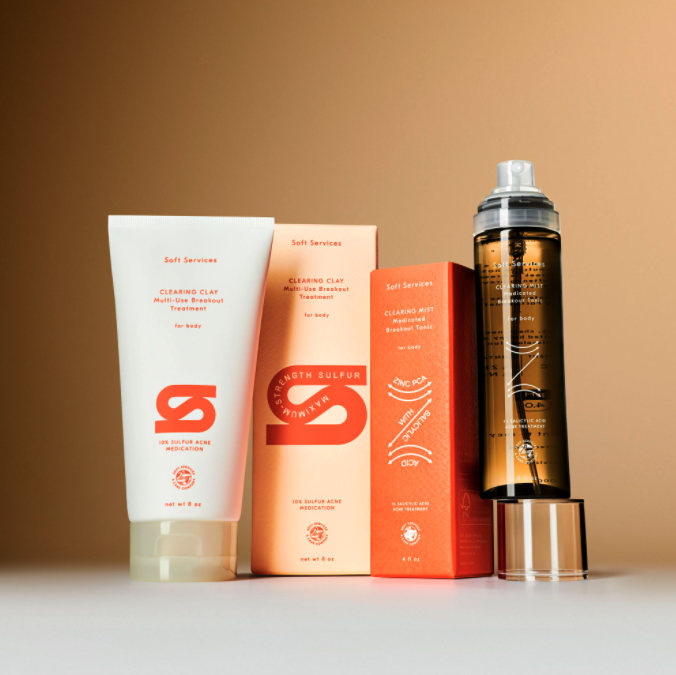 Soft Services
Soft Services
Soft Services is the first targeted body care company dedicated to addressing common skin concerns. Founded by Annie Kreighbaum and Rebecca Zhou — two e-commerce vets — this brand is everything you want on your bathroom shelf: beautifully packaged and so effective.
Their products have gone viral for their insane results. Targeting skincare concerns with medical grade ingredients, they proffer solutions for KP, acne, and dry skin. Somehow, they’ve made the unglamorous world of body care seem cool enough for Gen Z. We wouldn’t expect any less from former Glossier vets.
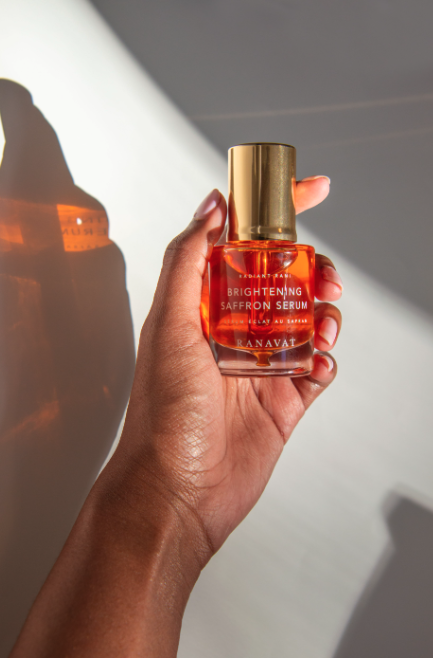 RANAVAT
RANAVAT
Michelle Ranavat leverages her expertise in the pharmaceutical industry and her background in engineering to create a line of beautiful skin and hair treatments that honor her South Asian heritage. Michelle fuses her science background with a passion for artisanal tradition, and this care can be seen at every touchpoint of clinically proven products. Distinguished Ayurvedic and adaptogenic cutting-edge actives such as Saffron, Ashwagandha, Turmeric, Manjistha, Amla, and Bakuchi are hand-selected for real results.
The brand proudly donates 1% of proceeds to Desai Foundation, a non-profit organization in India that empowers women and children through community programs to elevate health and livelihood in India and the U.S. Its hero products range from its Saffron Serum to its Shampoo and Conditioner. RANAVAT is beloved by industry insiders and celebs alike — fans include Mindy Kaling, Hailey Bieber, Meena Harris, and Freida Pinto.
via RANAVAT


